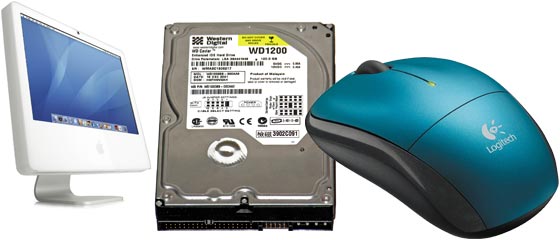 ![[Header]](../XuShared2/Line3.jpeg)

Add a Comment (Go Up to OJB's Blog Page) Computer Problems SolvedEntry 1635, on 2014-03-10 at 14:32:30 (Rating 1, Computers) Before I resume my usual series of rants I must do two things which are both more positive: first I must report on the state of personal computing, based on my experience with my latest laptop; and second I must write a positive post being nice about something (as recommended by a regular reader).
So I will take the easy option first and talk about computers and leave the more general positive post until next time...
I think several problems in personal computing have been more-or-less solved. First, computers are now fast enough for any reasonable user. Not only is the processing ability of my new computer truly amazing (I know this by looking at the activity graphs for the 8 CPUs which rarely go much above zero) but my previous machine with only 4 cores (2 hardware, 2 virtual) was also fast enough almost all of the time.
But some people still get frustrated waiting for their computers to work. Why? Almsot certainly not because of the CPUs. In my experience it is almost always because of the hard disk, and this issue is also solved by a feature of my current and previous machines: a fast solid state drive. Sometimes performance problems are caused by lack of memory too, but memory is cheap so that shouldn't be an excuse.
Finally there are software issues. Some people use inefficient systems and badly written software. Some have poorly designed anti-virus software, some have badly configured proxies and firewalls, and some just have bad networking.
These last points have definitely not been fixed. Poor software is depressingly common and its inefficiency can be disguised to some extent by our super-fast processors, but sometimes even they can't cope with the hideous coding out there. And piling on layers of security in an effort to fix a poorly designed system is also common, especially in the Windows world. Finally, at least here in New Zealand, we have terrible internet connectivity, but at least that might be improved when the new ultra-fast fibre becomes widely available.
So speed should be a non-issue, as long as a few basic requirements are met and some basic configuration is done properly. What other problems have been solved?
I think portability is pretty good too. My current laptop isn't super-compact and light like a MacBook Air might be, but it is light enough considering the functions it has. And the battery life is fairly impressive. Depending on the type of work I am doing I might reasonably expect to get a full 8 hour working day of life from the battery (it's now 1.30 pm and the battery says it has 6 hours of life left).
I am also impressed with connectivity. The new wifi spec 802.11ac is fast enough for almost anything (as long as you can find a wifi area which supports it). And USB3 is fast enough for most purposes, plus there is always the super-fast Thunderbolt, at least on Apple laptops, for anything beyond that.
Sure things could be even better still. If we had even faster CPUs or more cores that would be great (assuming it didn't adversely affect other areas, such as battery life). If we had lighter and smaller laptops with even better battery life that would also be helpful. And if we had even faster, longer range networking, and faster and more peripheral connections, that would also be nice (again all under the proviso that other functions weren't sacrificed) but I think we have reached a point where other priorities should be pursued.
Maybe I'll look back at this post in 10 years and laugh about how naive I was. By then we might have 32 cores running at 5 GHz, 256G of RAM and 100T SSDs, but I'm not so sure. Maybe computers will go the same way as other new technologies and reach a point where more subtle aims, such as ease of use, reliability, and security will be considered. At least, I hope so.
 There are no comments for this entry. 
You can leave comments about this entry using this form. To add a comment: enter a name and email (both optional), type the number shown above, enter a comment, then click Add.
Note that you can leave the name blank if you want to remain anonymous.
Enter your email address to receive notifications of replies and updates to this entry.
The comment should appear immediately because the authorisation system is currently inactive.
![[Comments]](../XuShared/Comment1B.jpeg) ![[Preview]](../XuShared/Comment6B.jpeg) ![[Blog]](../XuShared/Up2B.jpeg)
|

![[Comments]](../XuShared/Comment1B.jpeg)
![[Preview]](../XuShared/Comment6B.jpeg)
![[Blog]](../XuShared/Up2B.jpeg)